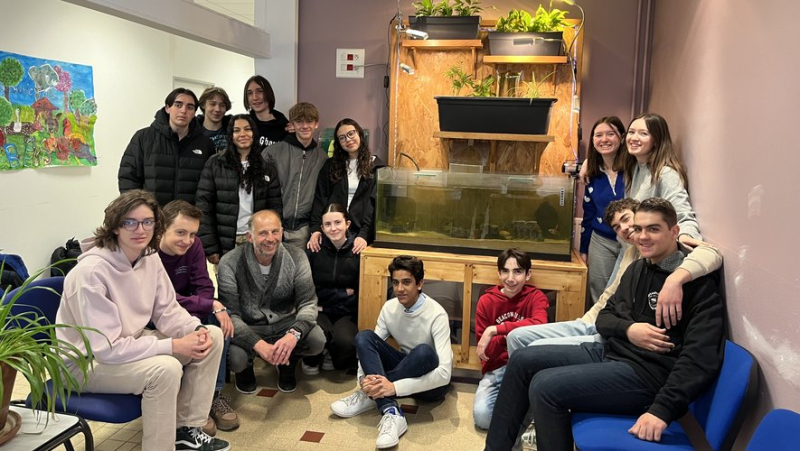Former third graders from Bernard de Ventadour college present their ecological project carried out in technology class

Les anciens collégiens, aujourd’hui en seconde, sont venus voir le résultat de leur travail réalisé tout au long de l’année dernière. Midi Libre – C.L.
An ornamental aquaponic system, which allows plants and animals to live together, has been operating for several weeks at the Bernard de Ventadour college in Bagnols. This project was imagined and designed last year by third grade students.
Last year, a third-year class from the Bernard de Ventadour college in Bagnols-sur-Cèze imagined a project to link ecology and technology. The twenty-five students, now in high school, returned this Wednesday March 27 to their former establishment to present their creation: an ornamental aquaponic system. It has been operational for a few weeks. "This allows aquatic plants and animals to live together in a closed system. The waste produced by fish is absorbed by plants, explains Eric Galissard, technology teacher who accompanied the students on the project. C&rsquo ;is an innovative cultivation method based on low consumption. It creates a sort of ecosystem." The whole thing can be controlled via wifi from’a phone. This home automation system was installed in the administrative part of the establishment, just opposite the principal's office.
1 000 € budget
The 300 liter aquarium houses around ten fish. It is placed on a shelf made by the students from a school table. "Everything was done by hand. They mainly used recycled materials. I didn’expect so much creativity from them, continues the teacher. All the themes that were to relate to the patent were addressed in the design of the system. What they have built goes beyond the expectations we have in college. This is a BTS level project."
The administration had released a budget of around 1,000 euros. This sum made it possible to purchase the three planters in which the indoor plants grow, lights, wood and the tools necessary to create the shelf and the structure. The two hours a week of technology classes had not been enough to complete the project on time. The students had worked overtime during the school holidays. "They invested until the end to leave something clean", comments the professor. They are the first to carry out an ecological project of this scale within the establishment.




